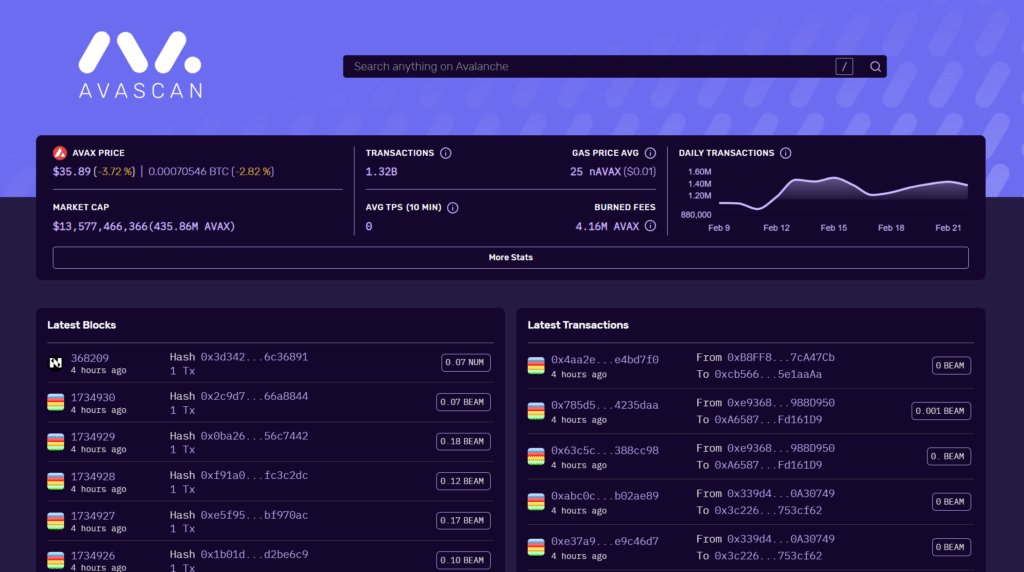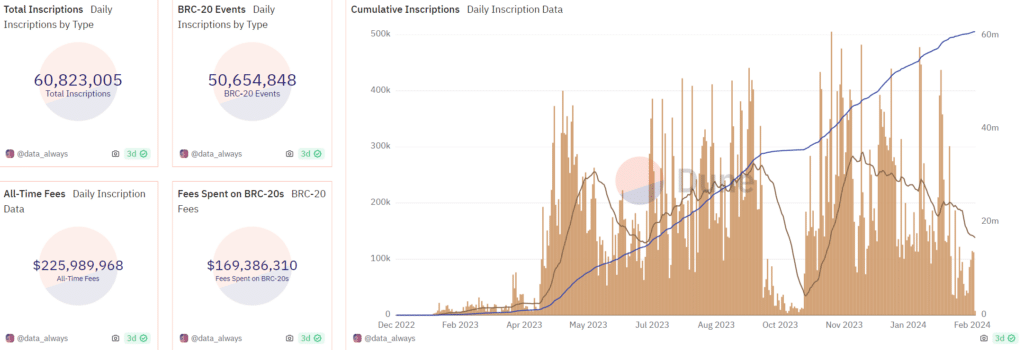Avalanche C-chain clogged for 4+ hours by inscription barrage

Avalanche experienced primary network downtime on Feb. 23 for at least four hours as developers moved to implement fixes.
Block finalization stalled on Avalanche’s C-chain due to a bug with new inscriptions launched on the layer-1 network, Ava Labs co-founder Kevin Sekniqi explained on X. Transactions halted on the blockchain as new blocks could not be added.
Avalanche operates using a tri-chain infrastructure split into C-chain, X-chain, and P-chain. C-chain is where creators deploy smart contracts, making this the base layer of defi activity.
The X-chain is dedicated to transferring assets and facilitating cryptocurrency exchanges, while the P-chain is the validator platform focused on securing Avalanche by staking AVAX, the network’s native token.
Sekniqi noted that the sheer magnitude of shipped code on Avalanche likely allowed the inscriptions bug to slip through unnoticed till it hit the mainnet. Avascan data showed the issue was unresolved at press time, although developers were reportedly addressing the problem.
Obviously, this is some esoteric bug from some edge case that should be handled quickly. Likely some mempool handling issue with inscriptions that hit some untested edge cases.
Kevin Sekniqi, Ava Labs co-founder

Amid the stalled chain, AVAX was down over 3% and traded around $36 per CoinMarketCap, but its price decline may be unrelated to C-chain downtime. Other major cap altcoins also traded flat on the day, while crypto’s total market cap experienced a slight slump after rallying to $2.1 trillion in the past few days.
Inscriptions slowing down blockchains occasionally occurred since the development emerged on Bitcoin’s network last year. Initially, developers used this method to embed data on the smallest Bitcoin unit, a Satoshi or SAT, a nod to Bitcoin’s pseudonymous creator, Satoshi Nakamoto. Since then, inscriptions have spread to altcoin networks like Avalanche, Arbitrum, Solana, and zkSync.
Some core Bitcoin developers oppose the idea, tagging it as a bug and a threat to crypto’s largest blockchain, valued at over $1 trillion. Nevertheless, participants have spent over $225 million in fees deploying more than 60 million inscriptions on-chain, per a Dune Analytics dashboard.















